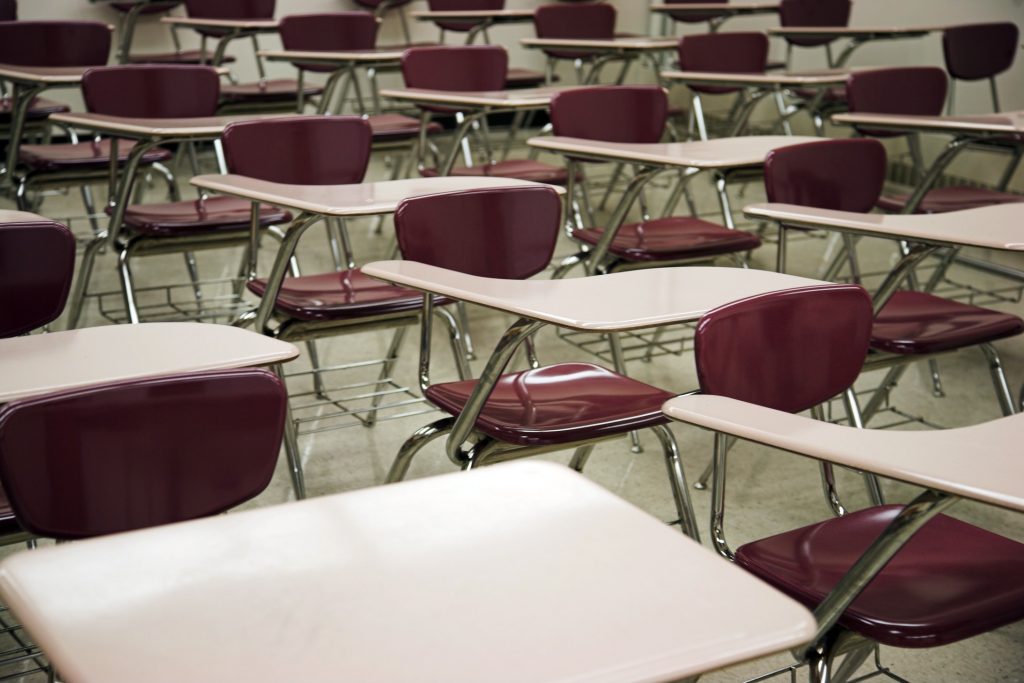Federal Funds Cut for WI Program Serving Children with Hearing and Vision Loss
US Department of Education cuts another nearly $11 million in grants to state.
The U.S. Department of Education has cut another nearly $11 million in grants to Wisconsin, this time to some of the state’s most vulnerable children.
Citing DEI concerns, the federal government ended funding in eight states for programs run through the National Center on Deafblindness, including Wisconsin’s Deafblind Technical Assistance Project.
The group serves 170 Wisconsin children from birth through age 21 who live with both vision and hearing loss — 85 percent of whom have four or more disabilities.
The project provides assistive technology tools, coaching, family support and professional training across Wisconsin.
The program was in the middle of a five-year grant cycle totaling more than $550,000, with funding expected to last through September 2028.
The programs targeted by the Department of Education are in Wisconsin, Oregon, Washington, Massachusetts, Maine, Connecticut, New Hampshire and Vermont.
The director of the Wisconsin Deafblind Technical Assistance Project received a letter from the Department of Education on Friday that said the program “reflects the prior administration’s priorities and policy preferences and conflicts with those of the current administration,” according to the Wisconsin Department of Public Instruction.
The letter also noted the project had a policy of ensuring that women, minorities and disabled veterans would be included in the hiring process, according to ProPublica.
Officials with the Wisconsin project did not return requests for comment.
The Department of Education was concerned about “trigger” words in the application, said Adrian Klenz, CEO of the Center for Deaf-Blind Persons, the Wisconsin organization that works with about 900 deaf and blind adults in the state.
Klenz said if the Deafblind Technical Assistance Project ends, children will not receive the services they need to help them transition into adulthood.
“It’s already a population that falls through the cracks, and it is very alarming what the potential ramifications are,” Klenz said.
Federal special education grant also canceled
In a statement to ProPublica, Department of Education Press Secretary Savannah Newhouse said the administration “is no longer allowing taxpayer dollars to go out the door on autopilot — we are evaluating every federal grant to ensure they are in line with the Administration’s policy of prioritizing merit, fairness, and excellence in education.”
Newhouse said the Department of Education renewed more than 500 special education grants that fund services under the Individuals with Disabilities Education Act. She said the agency decided not to renew fewer than 35.
But another funding cut last week in Wisconsin is a $10.5 million, five-year grant to train and retain special education teachers.
The State Personnel Development Grant programs included the Special Educator Induction Program, which in its first year supported 280 new special educators across the state.
“At a time when schools in every corner of the state are struggling to find and keep special educators, cutting this support is unconscionable and harmful to every student with an IEP (Individualized Education Program),” Wisconsin Superintendent Jill Underly said. “Wisconsin’s children deserve better, and so do the professionals who dedicate their careers to serving them.”
The grant also established a partnership between the state Department of Public Instruction and the University of Wisconsin-Whitewater to establish a teacher residency program.
DPI plans to appeal the decision to end both grant programs.
Underly said losing the funds will directly affect Wisconsin schools’ ability to serve the state’s most vulnerable children.
“Wisconsin had planned work with these funds that includes direct support for deafblind learners and their families and efforts to recruit and retain new special education teachers,” she said.
Federal funding cut for Wisconsin program serving children with hearing and vision loss was originally published by Wisconsin Public Radio.
If you think stories like this are important, become a member of Urban Milwaukee and help support real, independent journalism. Plus you get some cool added benefits.






















